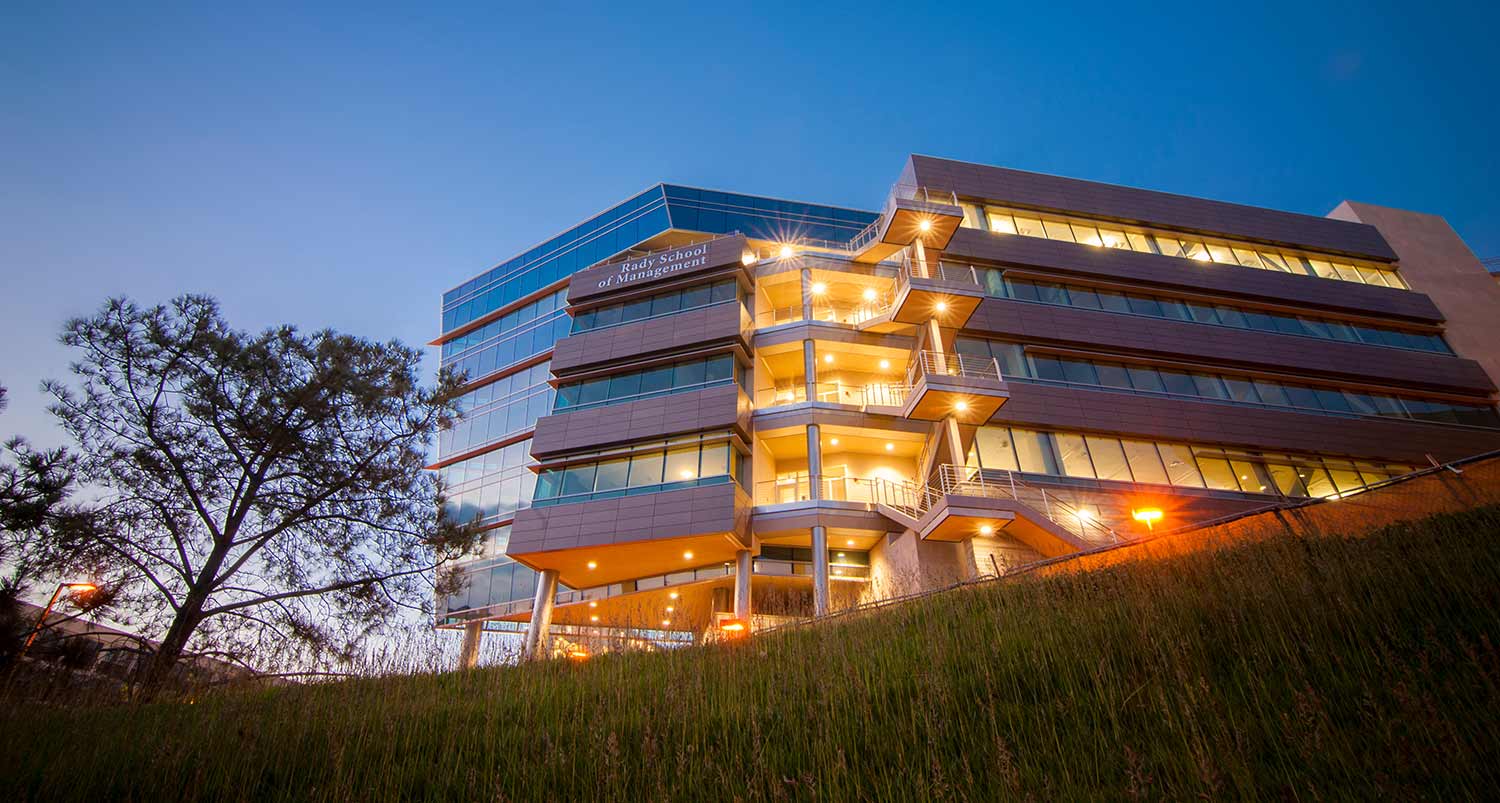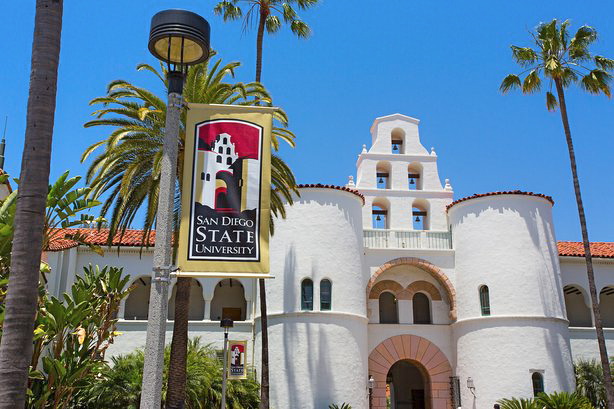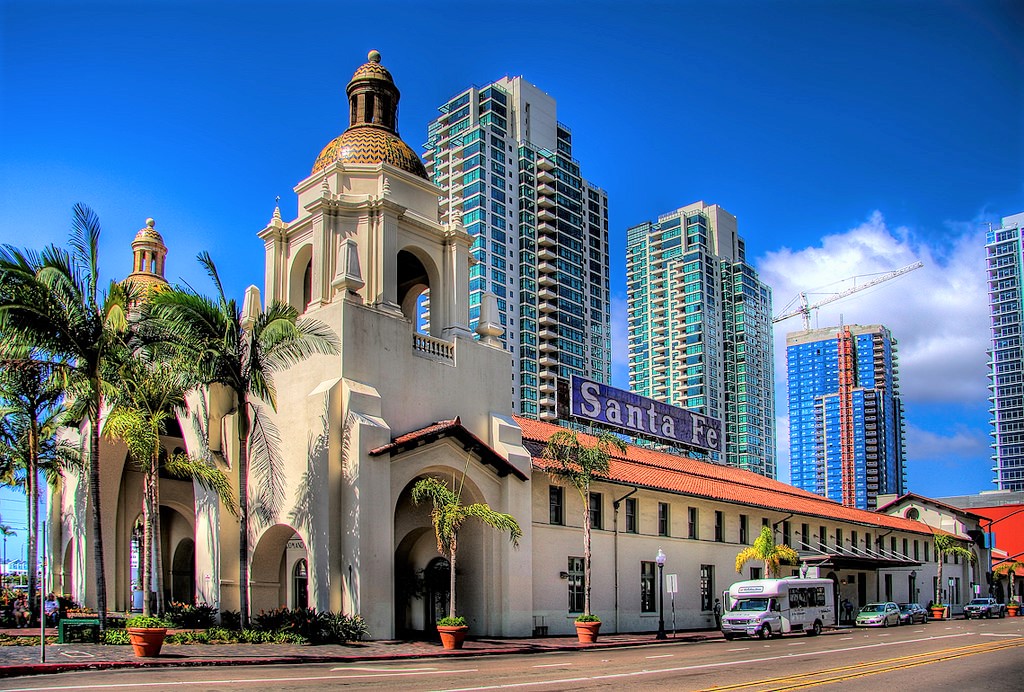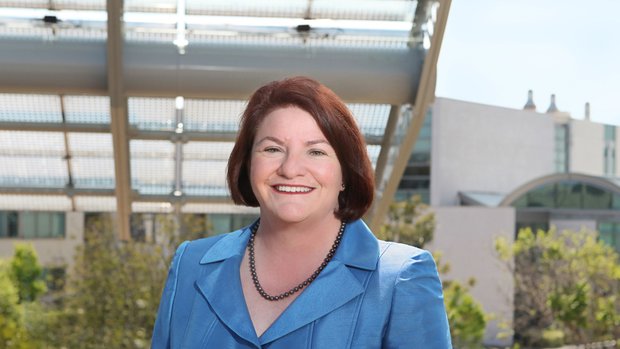Daily Business Report-July 1, 2020
UC San Diego’s Rady School of Management. (Photo by Erik Jepsen/UC San Diego Publications)
Rady School of Management
students gain opportunity to
assist with COVID-19 recovery
By Melinda Battenberg | UC San Diego
Students at UC San Diego’s Rady School of Management are getting a hands-on opportunity to give back to the community and assist with COVID-19 business recovery efforts in San Diego.
In May 2020, the Rady School launched the Rady School Business Recovery Coalition to offer free assistance to businesses in the San Diego region as they navigate the unprecedented challenges faced by COVID-19.
Through the Rady School Business Recovery Coalition, faculty, students, and mentors from the Rady School and across UC San Diego provide advice and insights to businesses affected by COVID-19. The services are managed by the school’s Beyster Institute and the California Institute for Innovation and Development (CIID).
Since the coalition’s launch, students have received the opportunity to work with several businesses on real-world issues. Businesses have asked for assistance in key areas such as forecasting the new normal and how to adjust business practices accordingly, cash flow analysis, and market and product analysis.
Students from the Rady School’s graduate and undergraduate programs will be able to apply to be part of the program. Students will be interviewed to become part of the project by leadership from the Beyster Institute, which will oversee the program. If accepted into the program, students will work with faculty and staff mentors who will help students with general consulting experience or in particular areas requested by clients.
_________________________________
California wine industry to lose
nearly $10 billion from coronavirus
The California economy will experience a loss of nearly $10 billion from a decline in revenues to the state’s vintners and growers because of COVID-19, according to a report issued by the Wine Business Institute at Sonoma State University.
California’s wine industry is projected to lose $4.22 billion in revenues in 2020, based on significant decreases in on-premise, tasting room, and direct sales, according to an analysis by Jon Moramarco released in April. That analysis estimated a $5.9 billion revenue loss for the entire U.S. wine industry this year.
California wine’s role in the travel and hospitality sectors across the state creates economic connections to hundreds of other businesses, according to the Sonoma State University report, which measured lost business revenue based on direct, indirect, and induced economic impacts.
In addition to forecasting a contraction of $9.6 billion in the California economy, the Sonoma State report projects a loss of 42,376 jobs and $586 million in state and local taxes in 2020 from COVID-19 related losses to wineries and growers.
“The California wine industry’s loss will have a ripple effect throughout the California economy because of the strong link to tourism, restaurants and related business sectors. We anticipate a challenging recovery period ahead,” said Ray Johnson, executive director of the Wine Business Institute at Sonoma State University.
_________________________________
Bars, wineries and breweries
to close again in San Diego County
San Diego region bars, wineries and breweries without a license to serve food will need to close to prevent community outbreaks of COVID-19 and the spread of the virus, the County Health and Human Services Agency announced today.
Starting July 1, these establishments must close their doors until further notice.
For those businesses with a food license, they can only serve food to customers seated at a table and alcohol can only be consumed while those patrons are eating.
The County will not consider further reopenings of any businesses or activities, including the bars, breweries and wineries, earlier than Aug. 1 to further slow the spread of COVID-19.
The decision was made given the number of outbreaks being identified in the region and the increasing number of cases and hospitalizations reported recently.
Nearly 500 cases of COVID-19 were reported in the County June 28, the highest total since the pandemic began.
Cases are being identified in a variety of settings, but recent outbreaks have been linked to bars, restaurants and private residences.
_________________________________
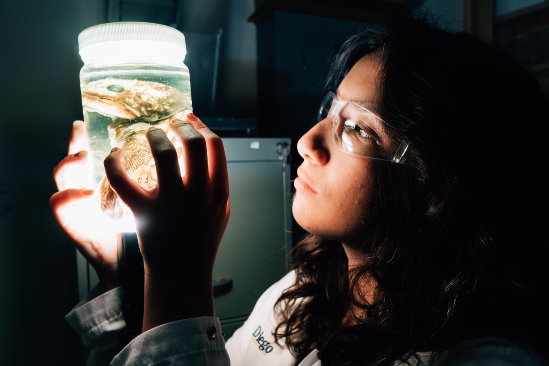
Scripps Institution of Oceanography’s
SURF program continues during pandemic
The turbulence set in motion by COVID-19 has not spared academia, but Scripps Institution of Oceanography has ensured that a program engaging students in research is continuing this summer and offering the same meaningful experiences, networking opportunities, and career prospects as before.
The Scripps Undergraduate Research Fellowship (SURF) is a 10-week paid summer Research Experience for Undergraduates (REU) program, hosted by Scripps Oceanography. It is designed to engage students in earth, ocean and atmospheric sciences research at a world-renowned institution where each SURF fellow conducts original research under the mentorship of a Scripps faculty member or mentor.
The main goals of the SURF program are to increase student diversity in geosciences, successfully prepare participants to pursue career pathways, and to recruit individuals from institutions with limited undergraduate research opportunities. According to the American Geosciences Institute, geosciences are among the least diverse science, technology, engineering and mathematics (STEM) fields in the U.S., with only 10 percent of doctoral degrees awarded to underrepresented individuals. The SURF program has prioritized increasing diversity at Scripps and the geosciences field as a whole.
_________________________________
City of San Diego resumes parking
enforcement starting today
As a reminder to San Diego residents, visitors and businesses, enforcement of all parking regulations will resume starting today. The enforcement will begin with a two-week grace period and citations with corresponding fines will be issued beginning Wednesday, July 15.
The city temporarily suspended parking enforcement on March 16 following the COVID-19 stay-at-home order. In developing a plan to restart parking enforcement, city staff consulted with several business groups representing communities across San Diego. Bringing back parking enforcement is identified as one small step toward restoring San Diego’s economy.
Starting today, the city will issue written warnings for vehicles parked in violation of:
Posted street sweeping routes; metered parking restrictions; curb time limits; commercial zones.
Citations will continue to be issued for vehicles parked illegally at red, white and blue painted curbs. Drivers are encouraged to follow posted signage when looking for a parking space. To learn more about parking rules in the city or to pay a citation online, visit sandiego.gov/parking.
_________________________________

Governor signs $202 billion state
budget that closes massive deficit
By Emily Hoeven |CalMatters
Gov. Gavin Newsom signed a $202 billion state budget Monday, largely cementing a deal he reached with lawmakers last week to close a massive deficit prompted by the coronavirus pandemic.
The plan slashes funding to courts and universities, cuts pay for state employees by about 10 percent, and suspends tax breaks for businesses — but shields schools and safety net programs from many of the cuts Newsom had proposed in May.
Newsom: “Our state has passed a budget that is balanced, responsible and protects public safety and health, education, and services to Californians facing the greatest hardships.”
The governor’s signature means most — but not all — of the work on a 2020-21 budget is complete. Lawmakers are still crafting the section of the budget that deals with the criminal justice system, after the Assembly declined to take action on it Friday. They may continue to tweak the budget after taxes are due on July 15. And major cuts will be averted if the federal government comes through with aid by Oct. 1.
_________________________________
Camino Pharma receives $920,000 grant
from the National Institute of Mental Health
Camino Pharma LLC, a San Diego startup biotech company focused on finding cures for cancer and brain disorders, announced that its co-founder and CSO, Reto Gadient, Ph.D., has been awarded a two-year, $920,000 SBIR grant by the National Institute of Mental Health at the National Institutes of Health.
The grant will fund a collaborative effort between Camino Pharma, University of California San Diego and Sanford Burnham Prebys Medical Discovery Institute to validate negative allosteric modulators (NAMs) of metabotropic glutamate receptor 2 and 3 (mGlu2/3) for the treatment of major depressive disorder and treatment-resistant depression.
_________________________________
Airport to receive $9.84 million federal grant
San Diego International Airport will receive a grant of $9.84 million from the Federal Aviation Administration for the rehabilitation of an airport apron. The grant is part of an $800 million federal investment in airport infrastructure.
_________________________________
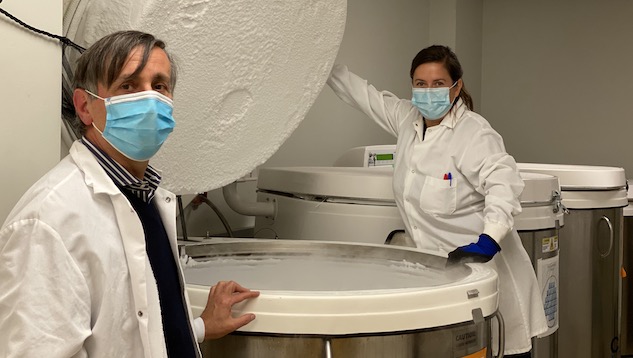
Even in worst COVID-19 cases, the body
launches immune cells to fight back
A new study from researchers at La Jolla Institute for Immunology (LJI) and Erasmus University Medical Center (Erasmus MC) shows that even the sickest COVID-19 patients produce T cells that help fight the virus.
The study offers further evidence that a COVID-19 vaccine will need to elicit T cells to work alongside antibodies.
The research, published June 26, 2020 in Science Immunology, also reveals that both Dutch and American patients have similar responses to the virus. “This is key to understanding how the immune response fights the virus,” said LJI Professor Allessandro Sette, who co-led the study with Erasmus MC virologist Rory de Vries, Ph.D. “You want vaccine approaches to be grounded in observations from rather diverse settings to ensure that the results are generally applicable.”

